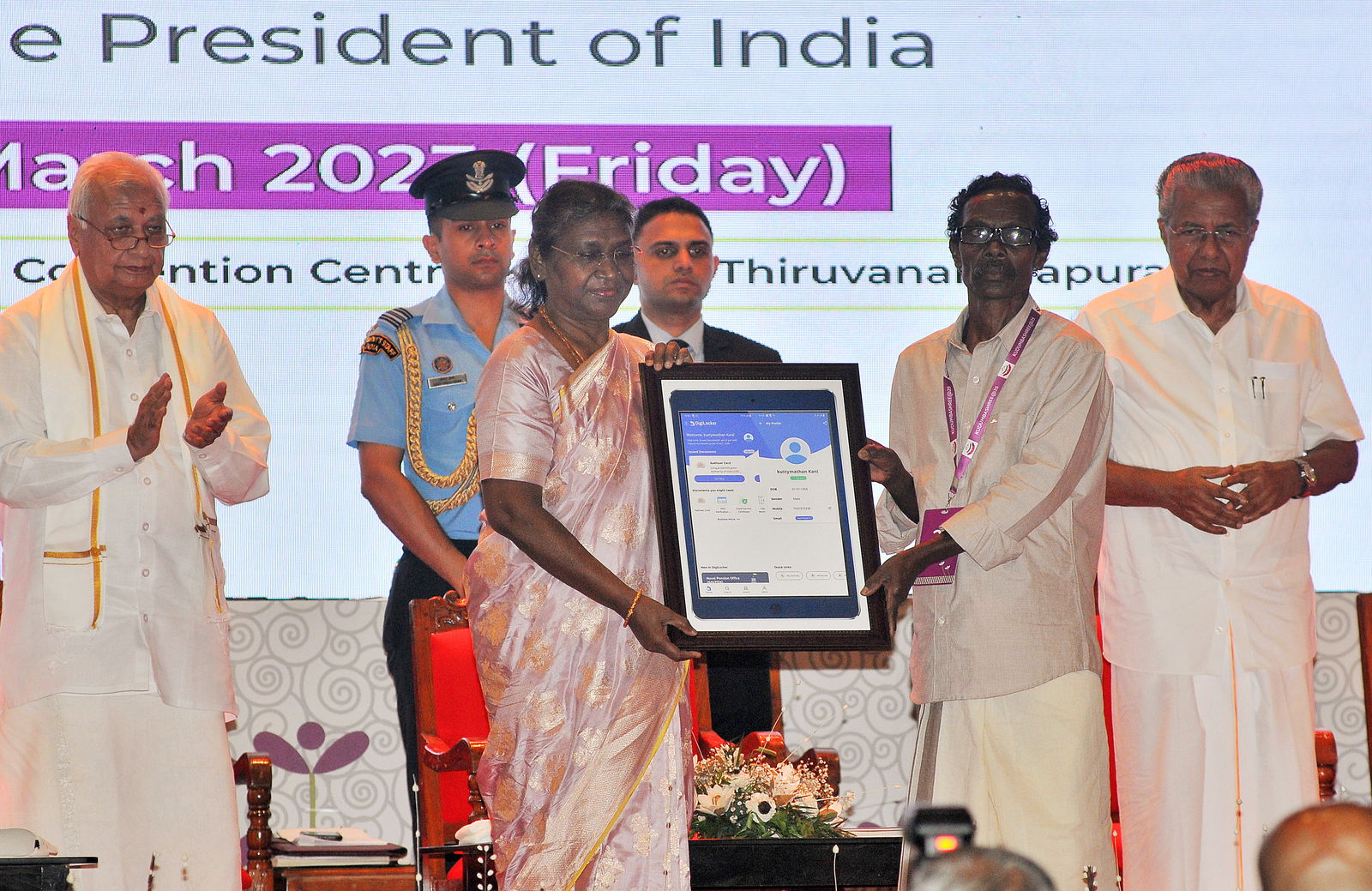This August 23, Saturday afternoon, the forests of Agasthyavanam in Kerala’s Thiruvananthapuram district stood silent as Kuttimathan Kani battled cancer and took the last breath.
Who is Kuttimathan Kuri?
Kuttimathan was a person who once found himself at the intersection of native knowledge and contemporary science. To the world, he was the renowned tribal leader who familiarized researchers with the miraculous plant Arogyapacha- the rare “elixir herb” found in the Western Ghats.
However, he is remembered differently in his own village, Chonampara, which is tucked away in the woods. A sick wife and four daughters are being supported by a weak father who is a drunkard and frequently too sick to work. A man who had experienced international fame but came back to a hut covered in poverty and tin sheets. The harsh irony of his life was this: he was praised as a trailblazer in biodiversity-based science, invited to international summits, and praised as the embodiment of indigenous tenacity, but he was destined to die in neglect, unable to pay for even the most basic medical care.
Expedition with scientists
This is from the late 1980s, when scientists from the Jawaharlal Nehru Tropical Botanic Garden and Research Institute (JNTBGRI) were trekking through the Agasthya hills. They needed local guides. Kuttimathan, along with his fellow Kanis -Mallan and Eechan, agreed to lead them through the treacherous terrain.
During the trek, the scientists noticed the men were occasionally plucking small fruits from a creeping plant and chewing them. The plant was Arogyapacha (Trichopus zeylanicus travancoricus), known for centuries among the Kanis as a secret ally that quenched hunger and restored stamina during long forest sojourns.
That disclosure, offered in trust and hunger, later revolutionised herbal pharmacology. Scientists validated its properties and, in 1995, launched a polyherbal formulation called ‘Jeevani’. Marketed as an anti-fatigue, immunomodulatory, antioxidant, and aphrodisiac tonic, it was hailed as the “ginseng of Kerala”.
For the Kanis, it was simply the herb that kept them alive. For Kuttimathan, who once considered swallowing it to end his hunger-stricken life, Jeevani was both a blessing and a curse- it kept him alive, but robbed him of peace.
In 2002, when the United Nations hosted the Earth Summit in Johannesburg, Kerala’s Kani Community Welfare Trust was invited to receive the first-ever Equator Initiative Award for “innovative benefit-sharing”. As secretary of the Trust, Kuttimathan flew to South Africa.
He shook hands with Nelson Mandela, exchanged pleasantries with the Canadian prime minister, and smiled from the covers of international magazines as a symbol of indigenous pride. But, after that, whatever future the Kerala Kani Community Welfare Trust envisioned as a mechanism to channel Jeevani’s royalties to the entire Kani community soon became a disaster.. Mismanagement, lack of transparency, and factionalism tore it apart. Loans were taken against its corpus to buy a jeep, which was later sold off. Accounts went missing. Many villages among the tribe felt excluded from consultations. By the mid-2000s, the trust office lay abandoned, its records eaten by dust and termites.











